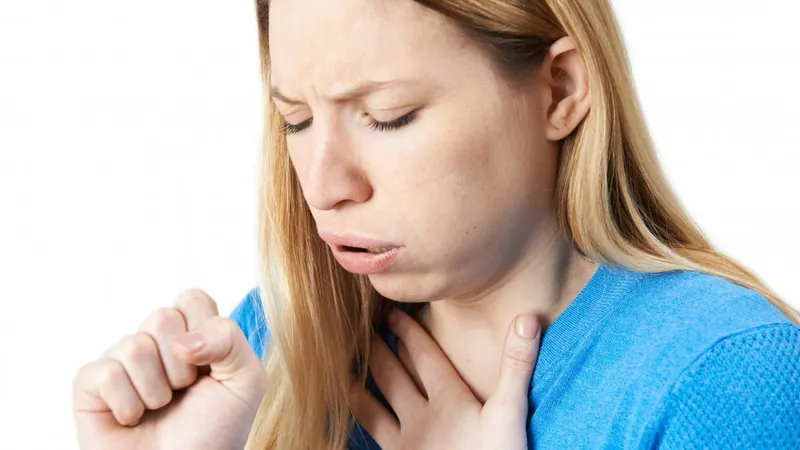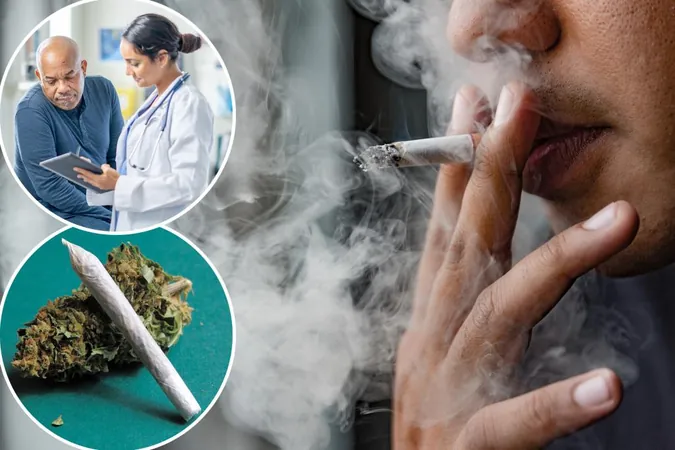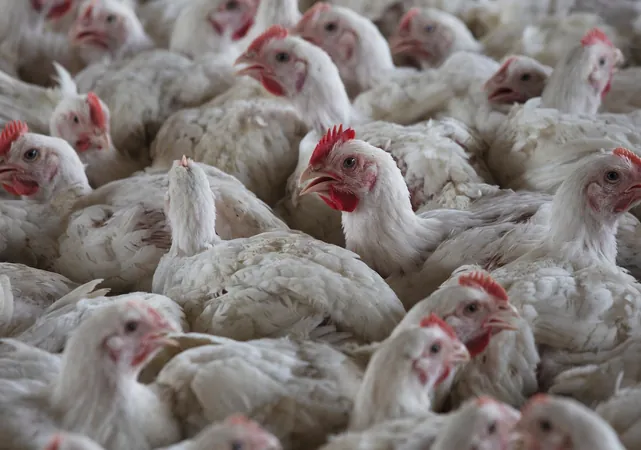
Whooping Cough Cases Surge: What You Must Know to Stay Safe!
2024-09-23
Author: Wai
As the seasons change, health experts are sounding the alarm about a troubling rise in whooping cough cases. This highly contagious bacterial infection, also known as pertussis, is infamous for its violent coughing fits, labored breathing, and the characteristic high-pitched “whoop” that can follow a coughing episode.
Fortunately, this illness is largely preventable through vaccination. The DTaP vaccine, administered to infants, offers protection against diphtheria, tetanus, and pertussis. A booster version, TDaP, is provided to older children and adults. Despite the availability of these vaccines, the Centers for Disease Control and Prevention (CDC) has reported a worrying decline in vaccination rates, leading to an increase in whooping cough cases. Dr. Jason Nagata, a pediatrician at UCSF Benioff Children's Hospital, emphasizes the urgency of this rise, especially for infants whose safety is at risk.
Understanding Whooping Cough
Whooping cough primarily targets the upper respiratory system, and while it can affect individuals of all ages, infants and toddlers are at the highest risk. As Dr. Nagata explains, significant coughing fits can last for weeks, potentially obstructing breath and leading to serious complications. Infants, who are unable to receive their first dose of the vaccine until they are at least 2 months old, can easily contract the disease from household members. Tragically, approximately 20 infants die from this infection in the U.S. each year, according to CDC statistics.
Although older children and adults experience milder symptoms, the illness can still disrupt daily life—affecting work, school, and sleep—and lead to complications such as pneumonia and severe discomfort. Dr. Andrew Pavia, an epidemiologist, highlights that intense coughing can lead to vomiting, choking, and even broken ribs.
Causes and Transmission
The culprit behind whooping cough is the bacterium *Bordetella pertussis*, which spreads through the air when an infected person coughs or sneezes, releasing tiny droplets containing the bacteria. These droplets can be inhaled by others, leading to rapid spread, often before the infected person realizes they are carrying the disease.
Prevention Strategies
To combat the rise of whooping cough, maintaining proper hygiene is essential. Regular handwashing and avoiding close contact with sick individuals can significantly reduce the risk of infection. Nonetheless, the most effective preventative measure is vaccination. Dr. Natt emphasizes the importance of caregivers and those interacting closely with infants receiving the TDaP vaccine. Pregnant individuals should also receive the vaccine during each pregnancy to safeguard their newborns.
What to Do If You or Your Child Is Infected
If you suspect you or your child has contracted whooping cough, it’s vital to seek medical treatment promptly. While antibiotics can help prevent the spread of the illness, they won’t immediately alleviate the cough. To ease symptoms and support recovery, ensure plenty of rest, stay hydrated, avoid irritants, and consider using a cool-mist humidifier.
Stay informed, stay vaccinated, and protect your loved ones from this preventable yet potentially deadly disease!




 Brasil (PT)
Brasil (PT)
 Canada (EN)
Canada (EN)
 Chile (ES)
Chile (ES)
 España (ES)
España (ES)
 France (FR)
France (FR)
 Hong Kong (EN)
Hong Kong (EN)
 Italia (IT)
Italia (IT)
 日本 (JA)
日本 (JA)
 Magyarország (HU)
Magyarország (HU)
 Norge (NO)
Norge (NO)
 Polska (PL)
Polska (PL)
 Schweiz (DE)
Schweiz (DE)
 Singapore (EN)
Singapore (EN)
 Sverige (SV)
Sverige (SV)
 Suomi (FI)
Suomi (FI)
 Türkiye (TR)
Türkiye (TR)